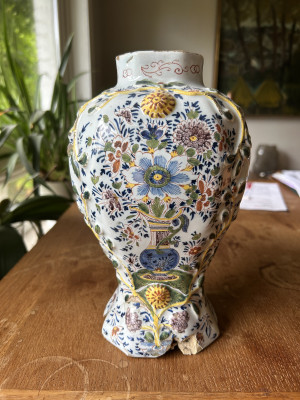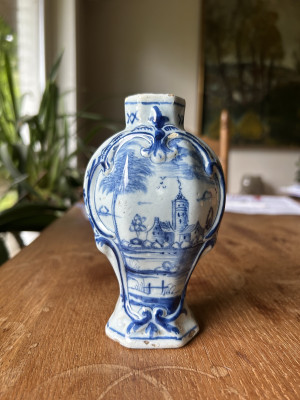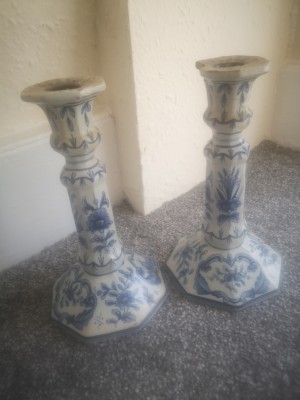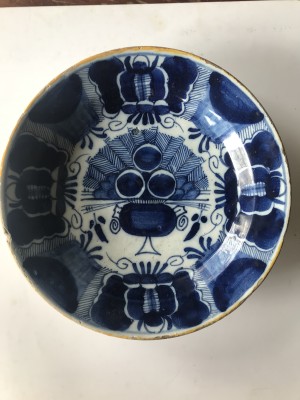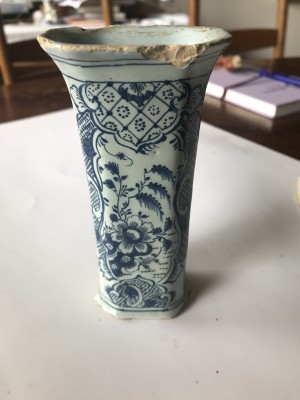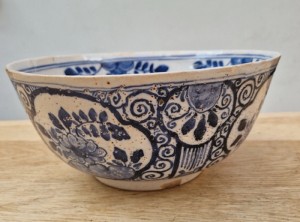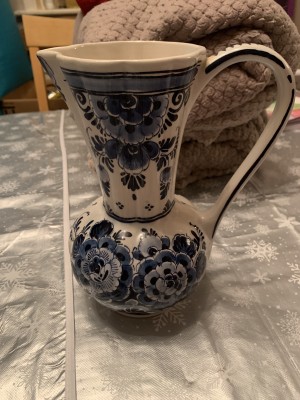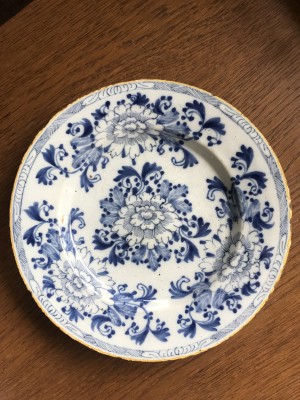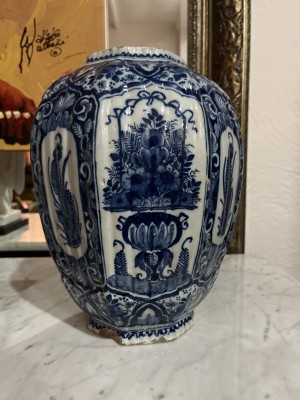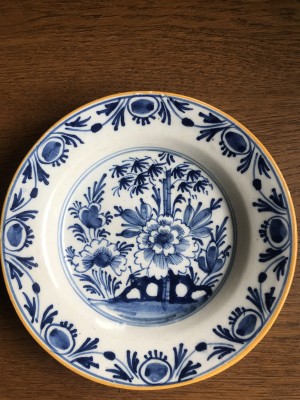Shared objects
Last comments
This looks like French pottery Fourmaintraux Frères to me, but I could be wrong. Look up the marks of this factory, maybe you will find a match! Best wishes.
In reply to This is a so-called peacock… by FrankyStevelinck1072
Thank you very much Franky! As always your inputs are very educational and I learn something new! 💙
In reply to It does indeed look… by PatrickW493
Thank you! Indeed pity that it was not well cared for, but offers us a chance to sneak-peek into the materials! It is beautiful anyway and I’m very proud to have it in my tiny delftware collection!
In reply to Indeed, as top-user Franky… by Robert Aronson
Thank you for the confirmation!
This is a delftware - meaning that this is made in the style of the Blue of Delft - jug produced by the manufacture of Velsen Sassenheim, it's not considered the genuine Delftware in the meaning that the public here uses. Genuine Delftware is typically used to refer to objects made by potteries in the city of Delft itself.
This is a genuine dutch-made object, not a no-name chinese replica, period is midcentury to late 20th, not sure about exact years; it's most likely vintage but not antique.
Greetings,
Teti
In reply to (Geen onderwerp) by roneedham
this looks like De Klauw mark, but I wouldn't know if it's a true one or a fake one. Check out the different variations of this mark here https://delftsaardewerk.nl/merk/een-klauw
In reply to (Geen onderwerp) by roneedham
This is the mark of "Chambre des Peintres", workshop in the Boch factory located in La Louvière, Belgium, according to the info on the website of the Royal Boch (current name of the factory), it was started in 1870-s and was operating till 1892, but the production of Delft-inpsired pottery didn't finish in 1892, as based on the catalogue of the factory of 1899, they still offered a large number of items. https://www.royalboch.com/fr/pages/histoire/
the mark can be found here https://www.royalboch.com/fr/pages/marques-et-backstamps/
In reply to With Underglaze technique,… by FrankyStevelinck1072
Thank you! I understand how the techniques are different, thanks for the "melts" with the glaze explanation, that makes it more specific for me. I probably need to look at more confirmed overglaze dishes to learn to see the difference, because for now it's not at all obvious to me, as a noob in pottery. Looks pretty much as shiny as newer marked with years De Porceleyne Fles items I have. I could say I do feel a bit of relief, but it's not like I could feel the drawing... only some points where the pigment is the darkest, feels a bit like "bump". Could it be something like this? https://delftsaardewerk.nl/bekijken/voorwerp/carla-van-wilgen/8279-bord…;
I am a bit confused about your comment re diameter, would appreciate if you could share a bit more on the sizes. Is there a link or reference I could learn more from?
Many thanks again for your inputs.
In reply to I found a similar plate on… by FrankyStevelinck1072
Thank you for sharing, how do you see it's not underglaze? I would like to learn. To me it looks very much like on this plate, and the size is almost identical. https://delftsaardewerk.nl/bekijken/voorwerp/tetim/8376-t-fortuyn-plate
and then by the same logic, this plate would also be not underglaze? https://delftsaardewerk.nl/bekijken/voorwerp/tetim/8375-plate-societe-c…
